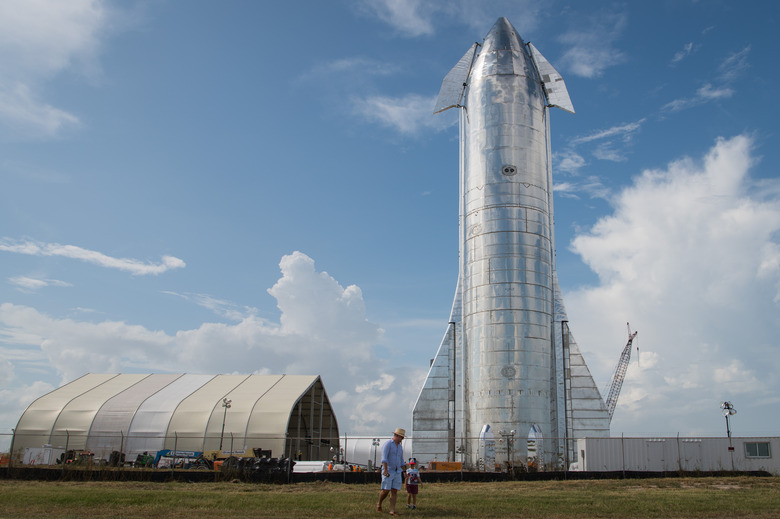SpaceX Satellites Could Mean Better Internet — But There Are Some Issues
SpaceX successfully launched 60 satellites this week as part of the company's ongoing Starlink mission to build a space-based internet network.
Like any rocket launch, the blast was a sight to behold, as was the skyscraper-esque image of the 60 satellites awaiting takeoff during their last hours on Earth. Starlink itself is a tantalizing prospect – Elon Musk's private rocket company is one of many itching to deploy tens of thousands of telecommunications satellites to Earth's orbit in order to bring reliable internet service to every corner of the planet.
And while it's still in the works for mass deployment, it's not just a futuristic dream. Last month, Elon Musk tweeted using a Starlink satellite, confirming success with a simple, "Whoa, it worked!!!"
Not all that Glitters is Gold
Not all that Glitters is Gold
But for all its potential for success, some astronomers and space experts are worried about the satellites promising to light up the sky. In fact, that's just the problem — that they're going to light up the sky. Since the age of space exploration in the late 1950s, about 9,000 satellites have been launched, total. At the moment, about 2,000 of those are operational.
That number is about to go way, way up. SpaceX has been approved to launch 12,000 satellites into orbit, and is asking permission for another 30,000. And that's not including the satellites launched from competing companies like Amazon, Telesat and OneWeb.
From Earth, those satellites can look like fake stars, especially in rural areas. And while it seems like it'd be nice to have an even starrier sky to gaze up at, astronomers are worried it can cause what's known as **light pollution.** It's a type of pollution much prettier than grime and smog, but one that can be damaging nonetheless.
Light pollution already happens in densely populated areas, where bright artificial lights from places like advertisements, sports stadiums, factories and commercial buildings can cause too much glare. Aside from making it harder for city dwellers to observe a starry night, the lights can make it more difficult for astronomers to view potentially harmful objects like asteroids, and they can disrupt the natural rhythms of animals and the local ecosystems.
Experts have been working with the Starlink team to address some of those concerns, and they've offered up potential solutions such as painting the Earth-facing sides of satellites black. But astronomers are worried that won't do the trick to cut down on light pollution, and that tens of thousands of satellites in the skies will make their job of identifying hazardous space objects much more difficult.
The New Wild, Wild West
The New Wild, Wild West
In addition to light pollution, many people are also worried about the lack of regulations in space. The galaxies aren't governed by any country, leading some to refer to it as the new Wild West.
It's been a concern for a while now, to the point where regulatory bills are being created in the U.S. government. But astronomers are especially concerned that any rules will be too little, too late when it comes to mitigating light pollution, especially as different companies are all competing for use of the same skies.
Broken down satellites could also lead to more space junk crowding orbits that are already full of more than 1 million pieces of floating debris. That ups the potential for dangerous collisions and satellite breakdowns, with very few rules in place about who's responsible for cleaning up the mess.
SpaceX says it's prepared to deal with these types of scenarios, and has already deployed an automatic collision avoidance mechanism with its satellites. But only time will tell if there's going to be a dark side to all that new light.
Cite This Article
MLA
Dragani, Rachelle. "SpaceX Satellites Could Mean Better Internet — But There Are Some Issues" sciencing.com, https://www.sciencing.com/spacex-communication-spacecrafts-13723060/. 14 November 2019.
APA
Dragani, Rachelle. (2019, November 14). SpaceX Satellites Could Mean Better Internet — But There Are Some Issues. sciencing.com. Retrieved from https://www.sciencing.com/spacex-communication-spacecrafts-13723060/
Chicago
Dragani, Rachelle. SpaceX Satellites Could Mean Better Internet — But There Are Some Issues last modified March 24, 2022. https://www.sciencing.com/spacex-communication-spacecrafts-13723060/
